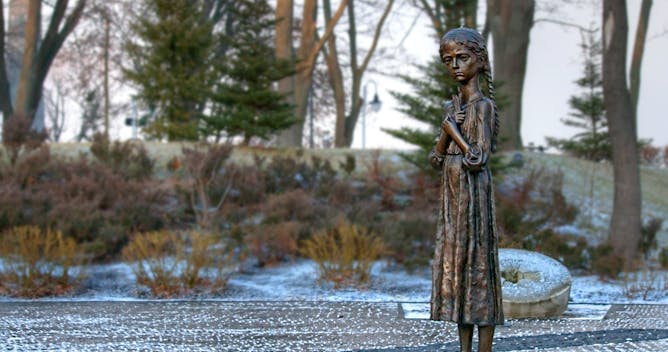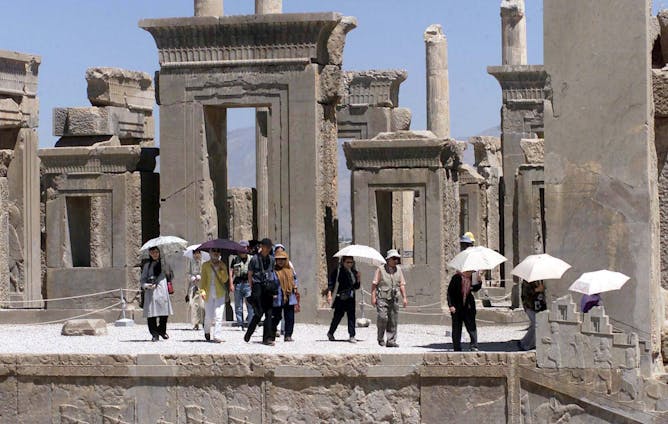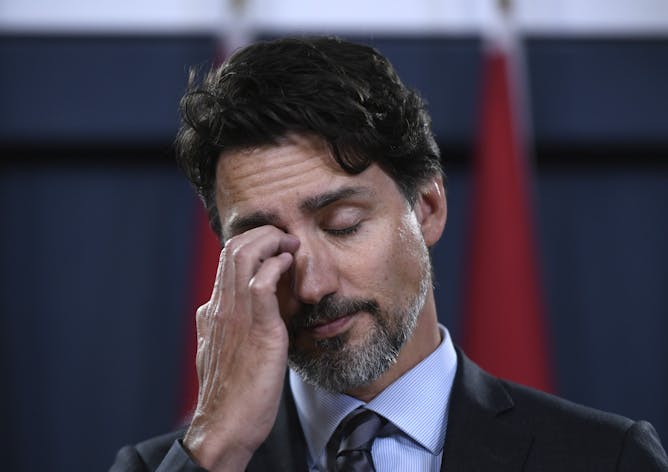|
|
|
Let's fix the problems in hockey
|
|
Allegations about harassment, abuse and discrimination in hockey have rocked the sport over the past few weeks. Today in The Conversation Canada, Taylor McKee and Janice Forsyth of Western University argue the scandals don’t have to persist if the federal government and the leagues can come together around new safe sport policies.
Bike sharing was once proposed as a solution to narrow the cycling gender gap — women make up less than one-third of commuters who bicycle to work. But the gap appears to be further widening, even as bike share programs are on the rise, according to Kate Hosford, Meghan Winters and Stephanie Sersli of Simon Fraser University.
Jay Wilson and Nadia Prokopchuk of the University of Saskatchewan argue that those teaching in publicly funded universities should be held accountable for denying the public record, whether in their classrooms or beyond.
Finally, Costanza Musu of the University of Ottawa issues a passionate plea for sparing cultural sites amid times of war. When the loss of heritage is used as a weapon of war, she argues, it represents a loss for the country affected as well as for humanity, targeting the memories, history and identity of a people.
Regards,
|
Scott White
Editor-in-Chief
|

|
|
Today's Featured Articles
|

Vancouver Canucks goalie Jacob Markstrom, of Sweden, looks on during the first period of an NHL hockey game against the Carolina Hurricanes in Vancouver, on Dec. 12, 2019.
THE CANADIAN PRESS/Darryl Dyck
Taylor McKee, Western University; Janice Forsyth, Western University
Hockey's scandals don't have to persist if the federal government and the leagues can come together around the new safe sport policies.
|

A row of Citi Bikes in New York City, where the privately owned bike sharing program has proven immensely popular.
(Anthony Fomin/Unsplash)
Kate Hosford, Simon Fraser University; Meghan Winters, Simon Fraser University; Stephanie Sersli, Simon Fraser University
Bike sharing was once proposed as a solution to narrow the cycling gender gap — but it may be further widening this gap.
|

Controversy erupted after a lecturer at the University of Alberta posted on Facebook in November that the Holomodor is a “myth.” Canada recognized the Holomodor — the death of millions of Ukrainians in 1932–33 due to Soviet policies — as an act of genocide in 2008. Here, the Holodomor Memorial, Kyiv, Ukraine.
(Flickr/Matt Shalvatis)
Jay Wilson, University of Saskatchewan; Nadia Prokopchuk, University of Saskatchewan
Those teaching in publicly funded universities should be held accountable for denying the public record, whether in their classrooms or beyond.
|

Tourists visit Persepolis, a UNESCO World Heritage Site, northeast of the Iranian city of Shiraz.
AP Photo/Vahid Salemi
Costanza Musu, L’Université d’Ottawa/University of Ottawa
When the loss of this heritage is used as a weapon of war, it represents a loss for the country affected as well as for humanity. It targets the memories, history and identity of a people.
|
La Conversation Canada
|

Le premier ministre Justin Trudeau fait une pause alors qu'il prend la parole lors d'une conférence de presse à Ottawa le 11 janvier. Trudeau a déclaré que l'Iran doit assumer l'entière responsabilité d'avoir abattu par erreur un avion de ligne ukrainien, tuant les 176 civils à bord.
La Presse Canadienne/Justin Tang
Jeremy Wildeman, University of Bath
L'absence de liens diplomatiques depuis 2012 entre le Canada et l'Iran nuit aux Canadiens au Moyen-Orient. Comme la tragédie du vol PS752 l'a montré, le Canada est perdant en restant ainsi isolé.
|
Culture + Society
|
-
Christine P. Bartholomew, University at Buffalo, The State University of New York
Pope Francis recently removed a rule known as Pontifical Secrecy, which allowed clergy and church officials to withhold information regarding sexual abuse. Will it make the church truly transparent?
|
|
Education
|
-
Judith Seaboyer, The University of Queensland
We have transitioned from a literate culture to one that values speed, immediacy and the decoding of small grabs of words in search for information. But old and new ways of reading can co-exist.
|
|
Environment + Energy
|
-
Katerina Guschanski, Uppsala University
Surveys are likely to have missed multiple groups and individuals due to differences in survey techniques.
|
|
| |
| |
| |
| |
| |
| |
|
|
|
|
|
|
|